Determined Women Take Up the Challenges of Development in Chad
In the provinces of Kanem and Barh el Gazel in Chad, women are taking action to take up the challenges of development. Their individual and collective actions bring concrete life change for their families and communities. Prisca and Fatime talk about how they are trying to make a difference.
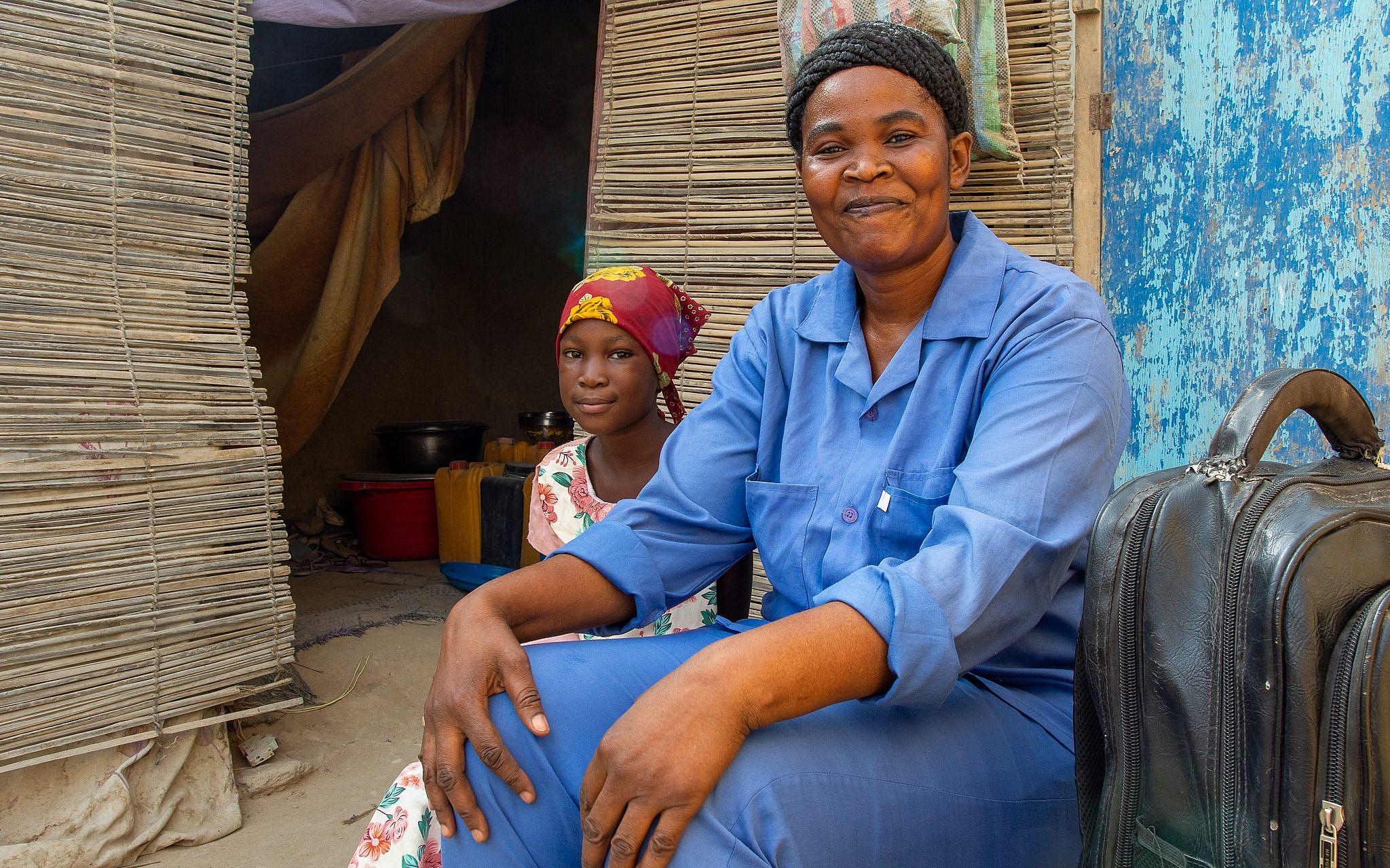
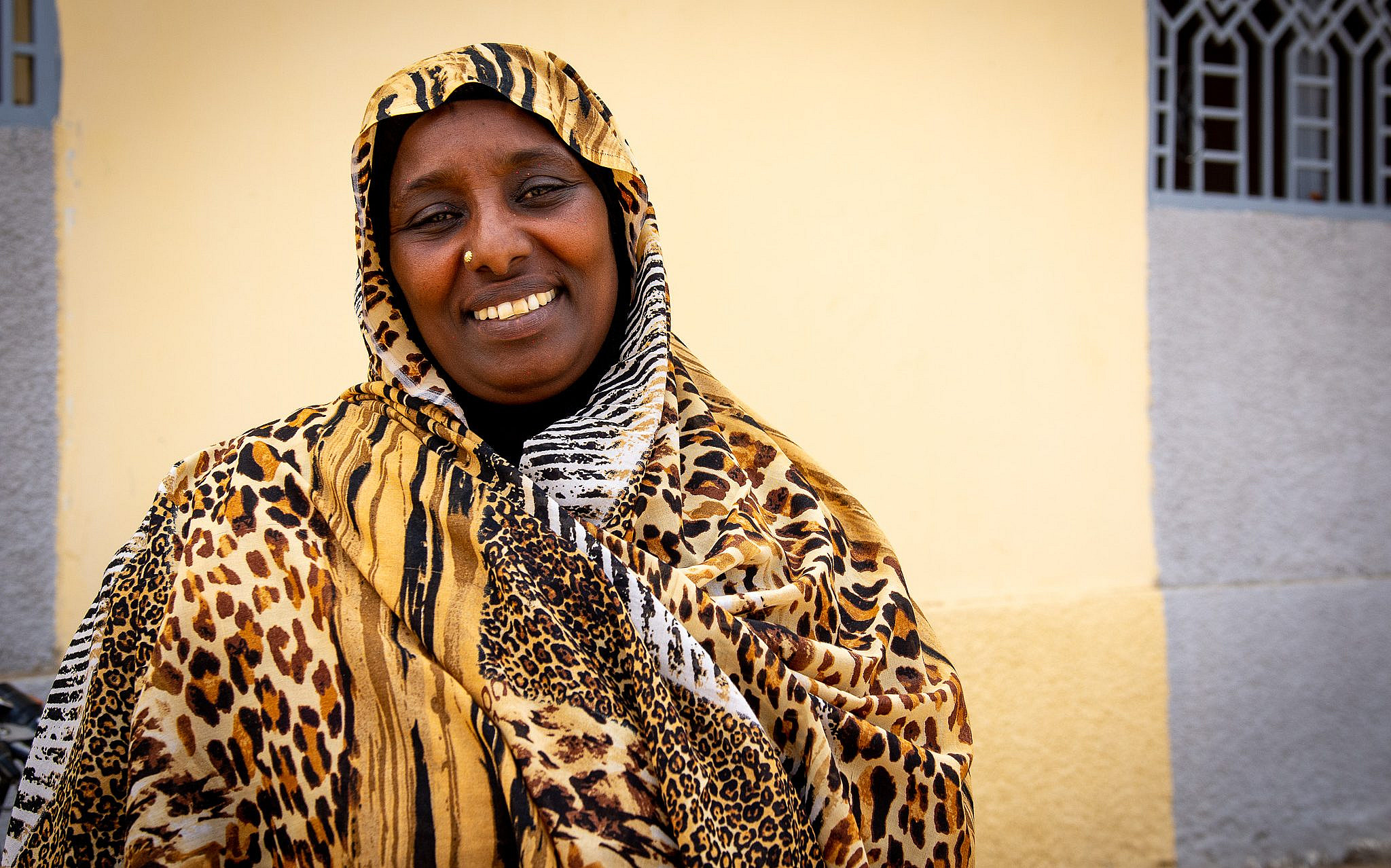
Prisca, Electrician, Passionate and Determined
Prisca lives in the municipality of Mao, in western Chad, the ‘white’ town built in the middle of the desert. She found her path after completing a 45-day electrical apprenticeship. This training gave her new professional opportunities and greater stability to meet her needs.
This training helped me a lot. I have a daughter, and this helped me to find work. I find work in construction projects and earn money, which enables me to pay my rent, go to school and buy food for my daughter.”
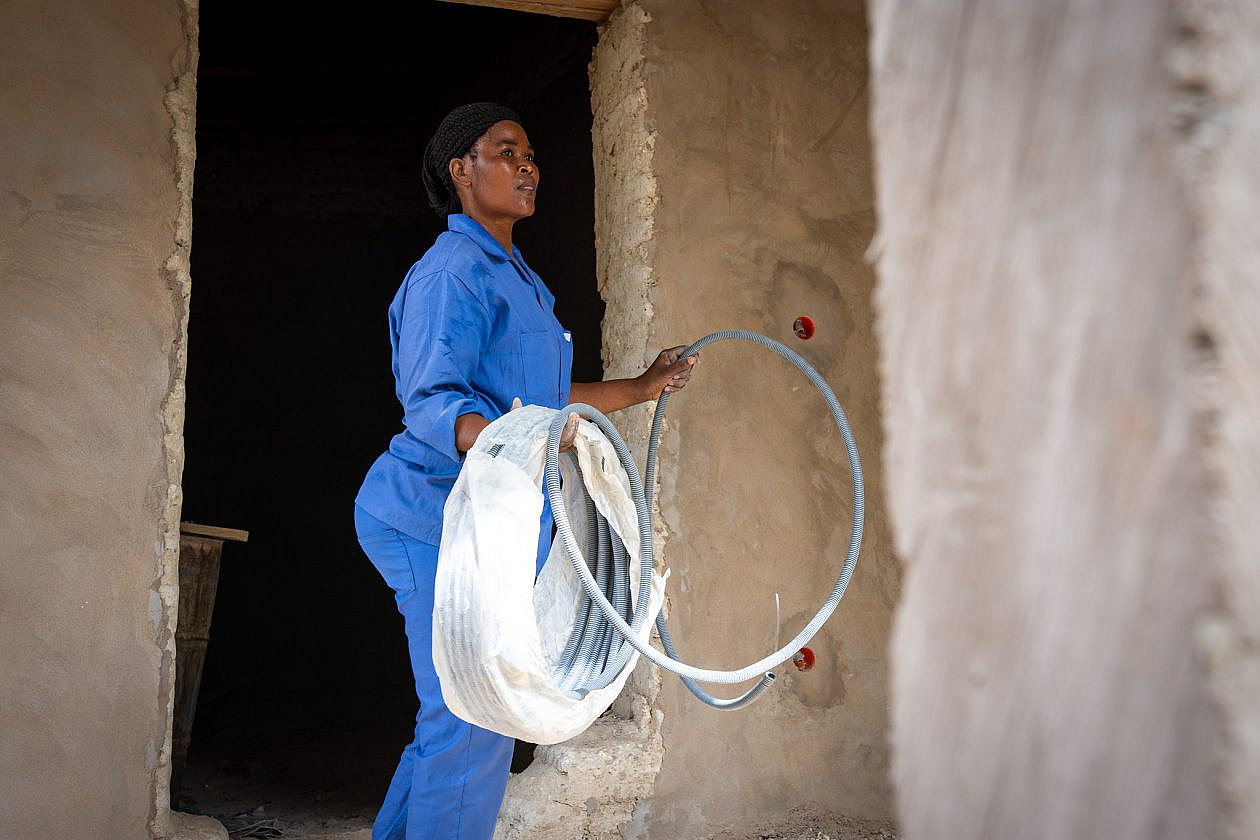
Prisca would like other women to become electricians like her, because she has to deal with the stereotypes associated with her choice of profession on a daily basis:
The way other people look at my profession as a woman is hard to bear. Because I’m wearing electrician overalls, people laugh at me. But the work I do is useful and good. I would like other women to come and work with me and for us to join forces so that there are more of us. But when they see me walking down the street in this outfit, they think I’m doing a man’s job. My dream is to train other women and set up a company of women electricians. I would like to teach them the beauty and value of this profession.”
Where did the idea for this job come from? Prisca recalls:
I wanted to become an electrician when I was a child. At school, I read a book with an illustration of a woman electrician, and it immediately made me want to do this for a living!”
Several Alliance Sahel member projects, support the training of young Chadian men and women, such as Prisca. This is the case of the livelihood improvement project in Western Chad (PAMELOT), funded by GIZ. This project is in line with the priorities of the territories and municipalities of the Kanem and Barh el Gazel provinces.

Fatime, President of the Barh el Gazel Women’s Platform
Fatime Mahamat Nour is an example of female leadership in the region, highlighting the strength of women when they unite to overcome obstacles. She took up the leadership of the Women’s Platform of Barh el Gazel Province, which brings together women’s groups who unite to overcome the challenges they face individually.
Many of these women are widows or live on their own. Their husbands have gone to work in high-risk areas, such as gold-mining sites, or abroad. They have no means of support and often have to turn to NGOs and the Government for funding that does not cover all their needs.
The CPA acts as a channel of communication between the groups, the decentralised government technical services and the NGOs. The CPA explains the difficulties on the ground to the NGOs so that they can better direct their actions in line with priorities and needs. This coordination between NGOs, the government and the Women’s Platform means that actions aimed at women can be better targeted”.
The Women’s Platform has joined the Action Provincial Committee (Comité Provincial d’Actions – CPA) to amplify these women’s voices.
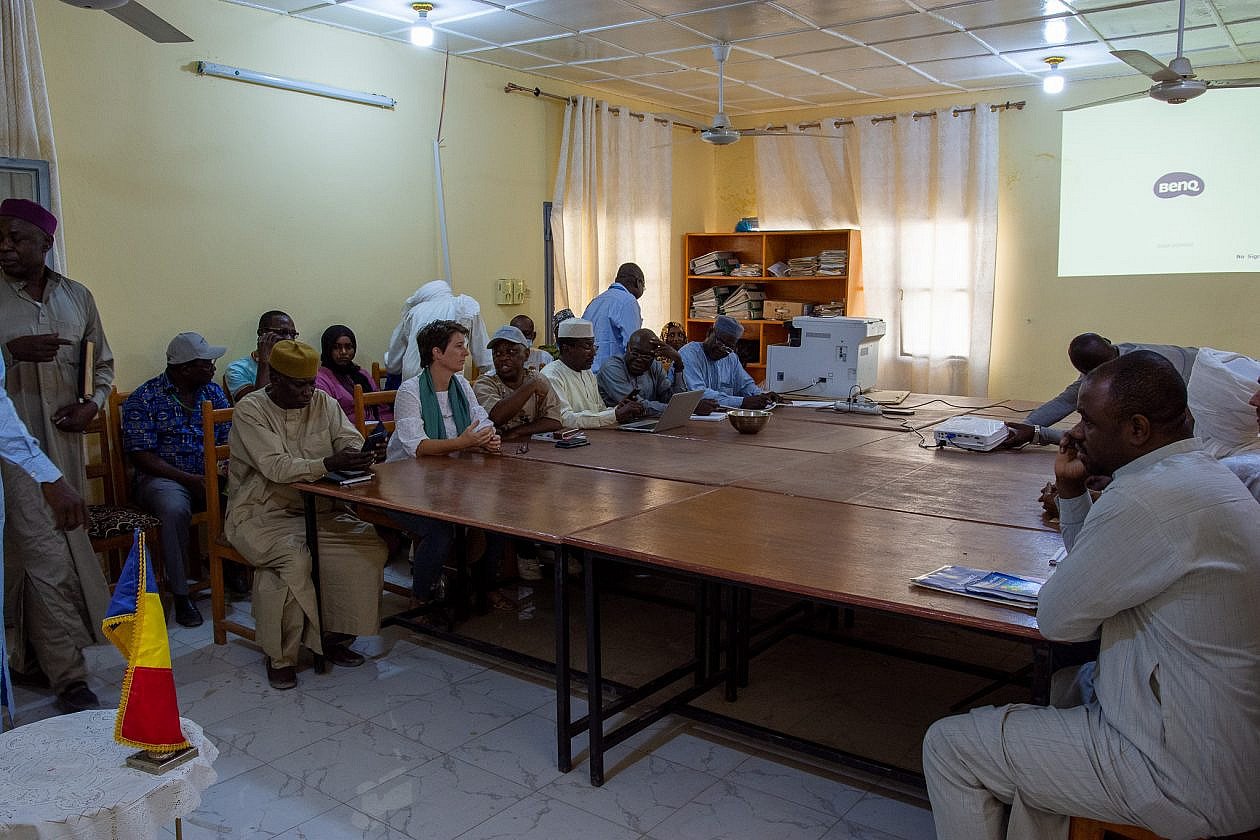
Alliance Sahel members funding projects in the Barh el Gazel region take part in the CPA, an essential coordination forum for supporting the development priorities of local actors.
In the province of Barh el Gazal, women face a number of difficulties, in particular early and forced marriage, which hampers their growth and development. Women also face obstacles in accessing microcredit, which prevents them from developing income-generating activities.
The PAMELOT project trained young people in the province in a number of areas (electricity, sewing, etc.) and helped them to develop their professional activities. This is a very positive change, as Fatime points out:
With the support of the project, departures are much more limited than before. When the men leave, they leave behind women and children who are unable to support themselves. The young people trained by PAMELOT are now working and have no reason to leave their communities.”
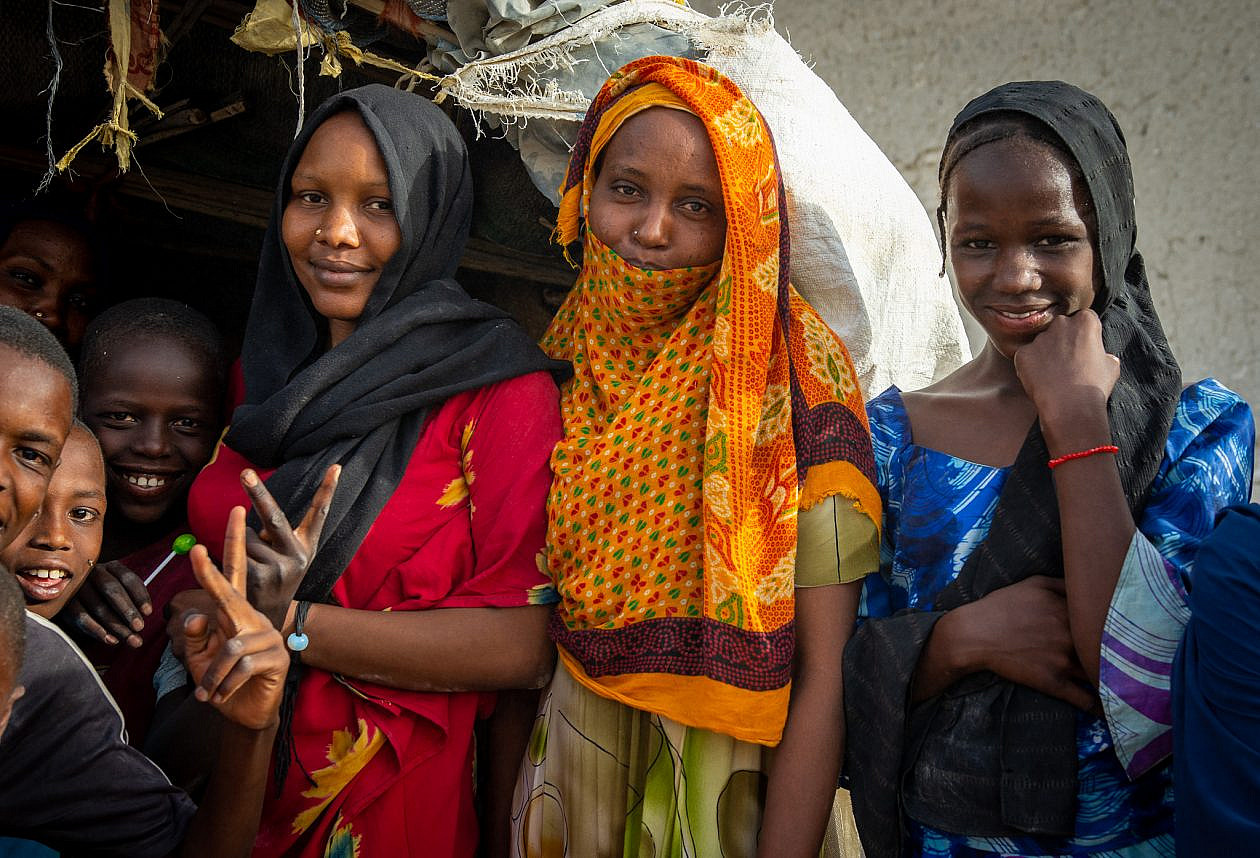
The Integrated Territorial Approach (ITA): A Lever to Support Women’s Efforts
Implemented by the Sahel Alliance, the Integrated Territorial Approach allows better coordination of members’ efforts and better targeting of actions towards the real needs of populations.
To put this approach into practice, the members of the Sahel Alliance are working with the Provincial Action Committees. Fatime explains what this changes:
With ATI, there is coordination of actions from the outset, and actions are carried out in a much more orderly manner. When we meet at the Platform or with the CPA, we share information and ideas for development, for living together and for peaceful coexistence. I hope that we can continue to work with this approach, that we are given the means to eradicate the problem of underdevelopment in the province.é
Determined, resilient and ambitious, Prisca and Fatime are driving forces for change in their community. A promise of hope for development in Chad. We would like to thank them for their testimonies.
Pictures: Aude Rossignol/Alliance Sahel
Go further

